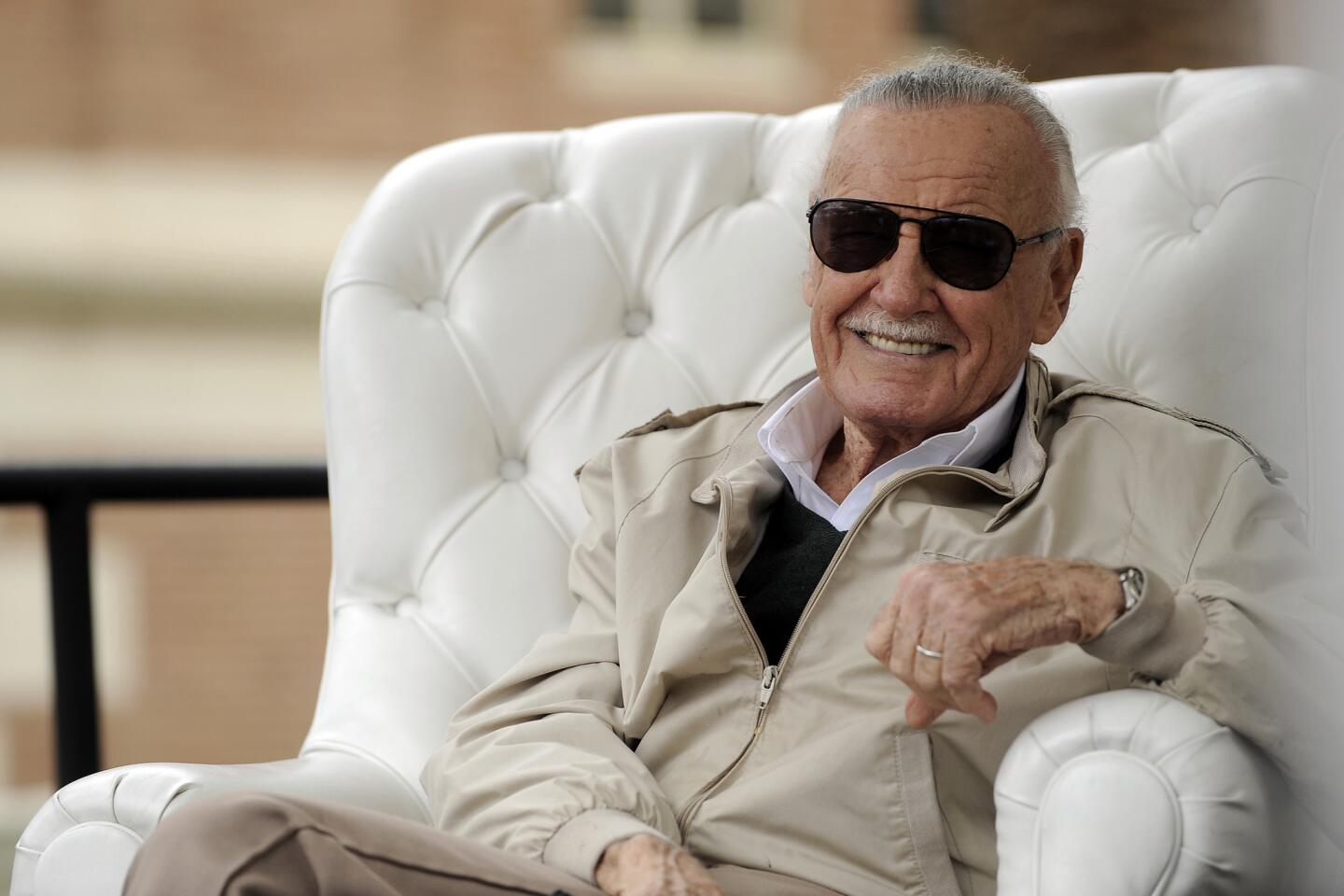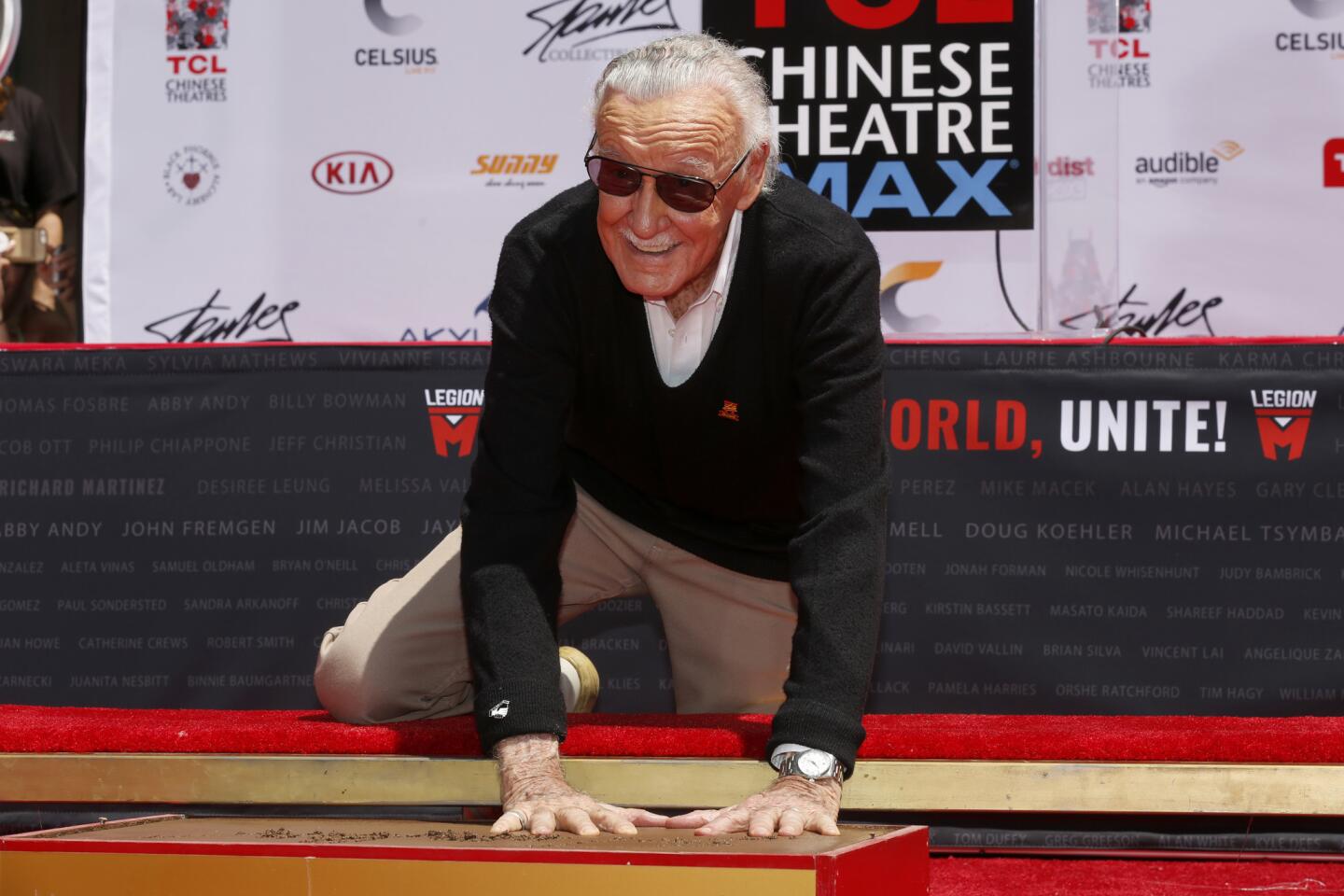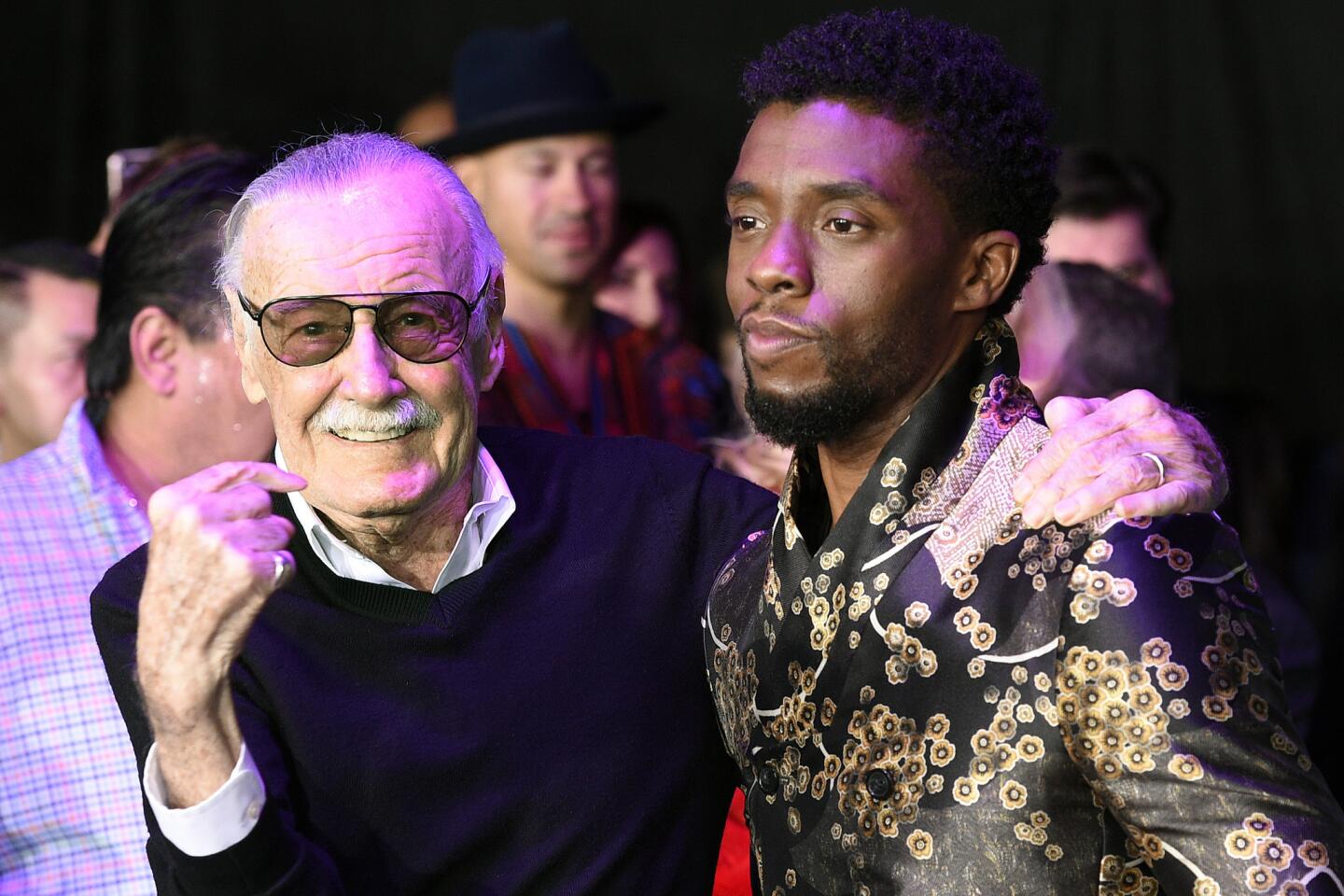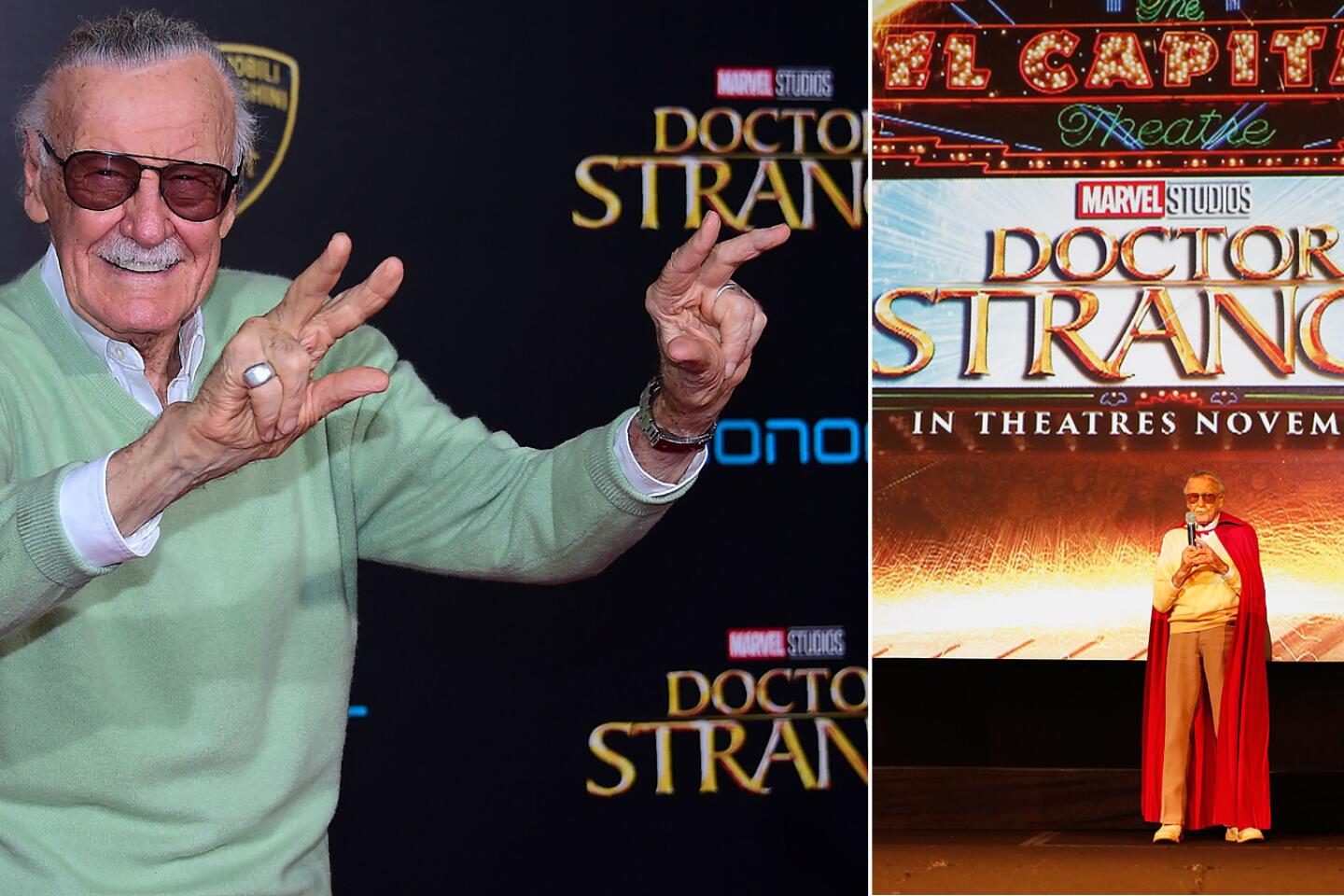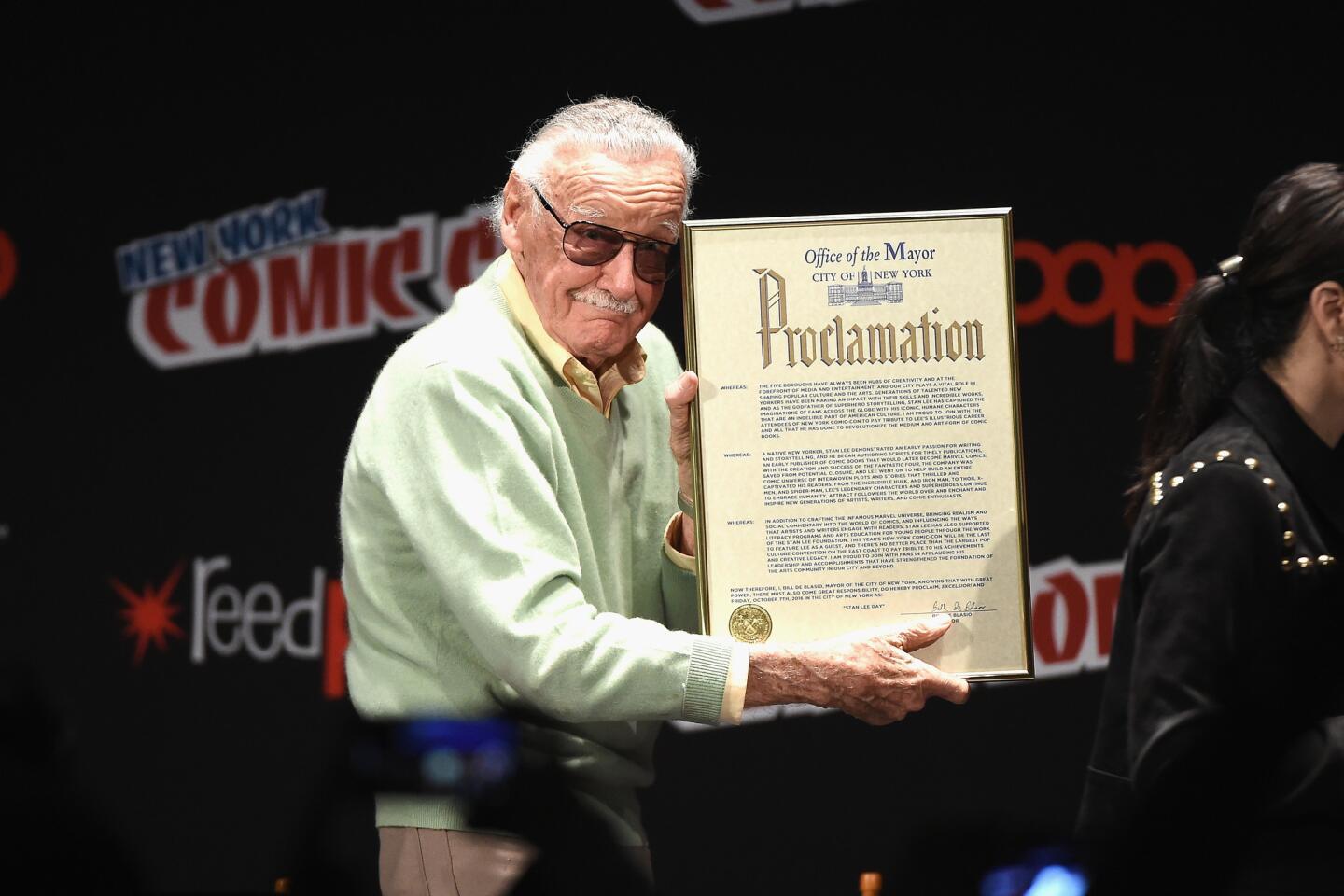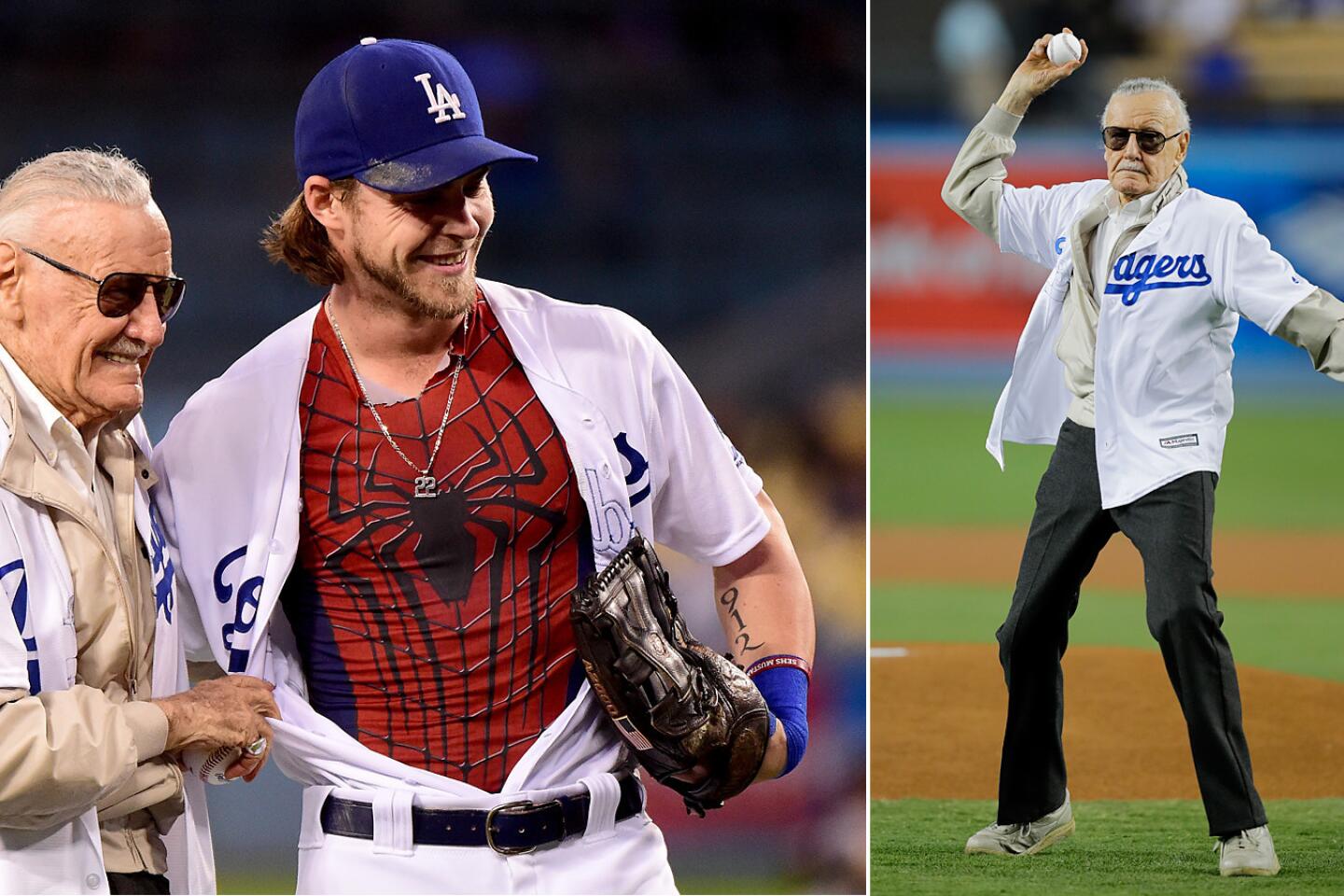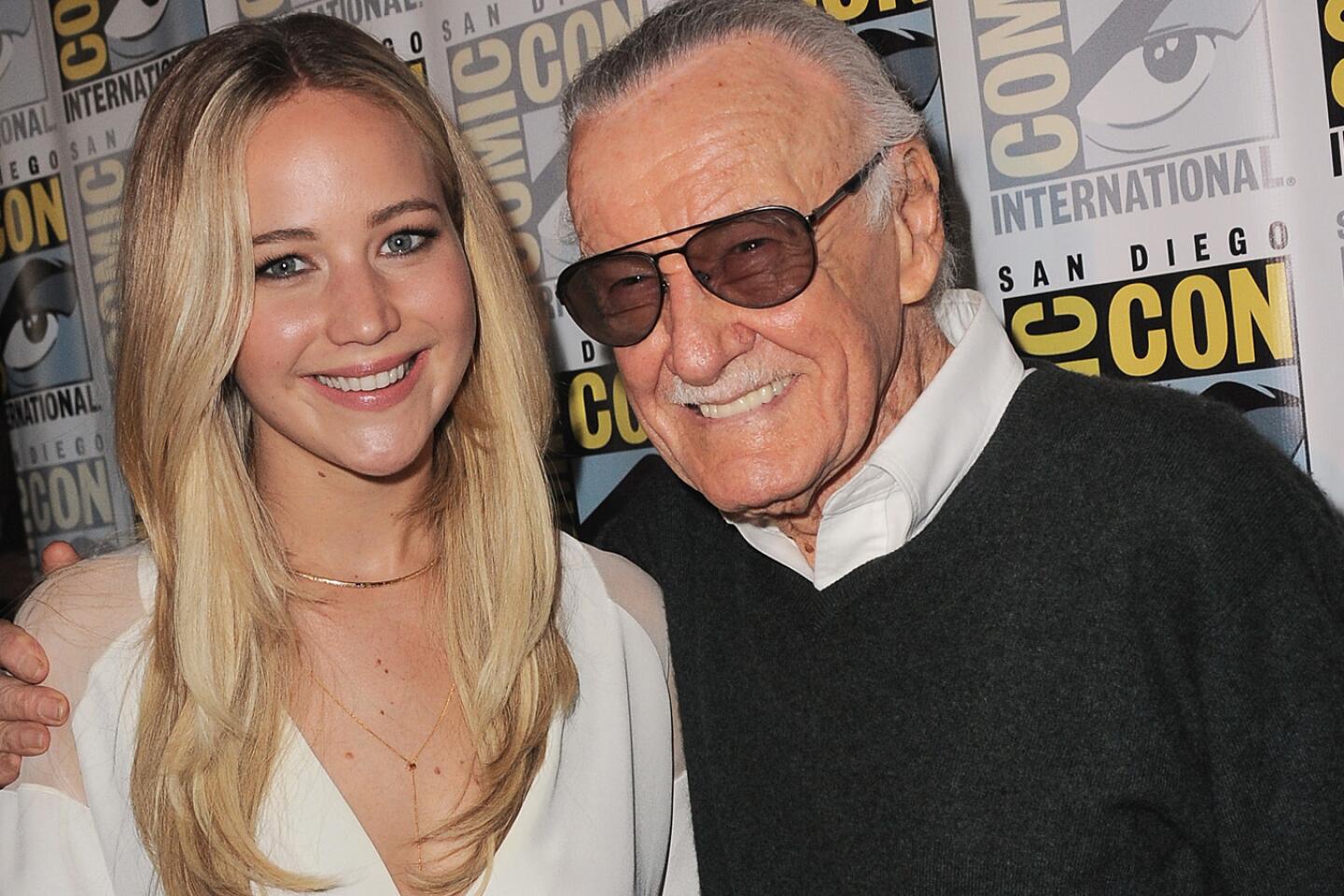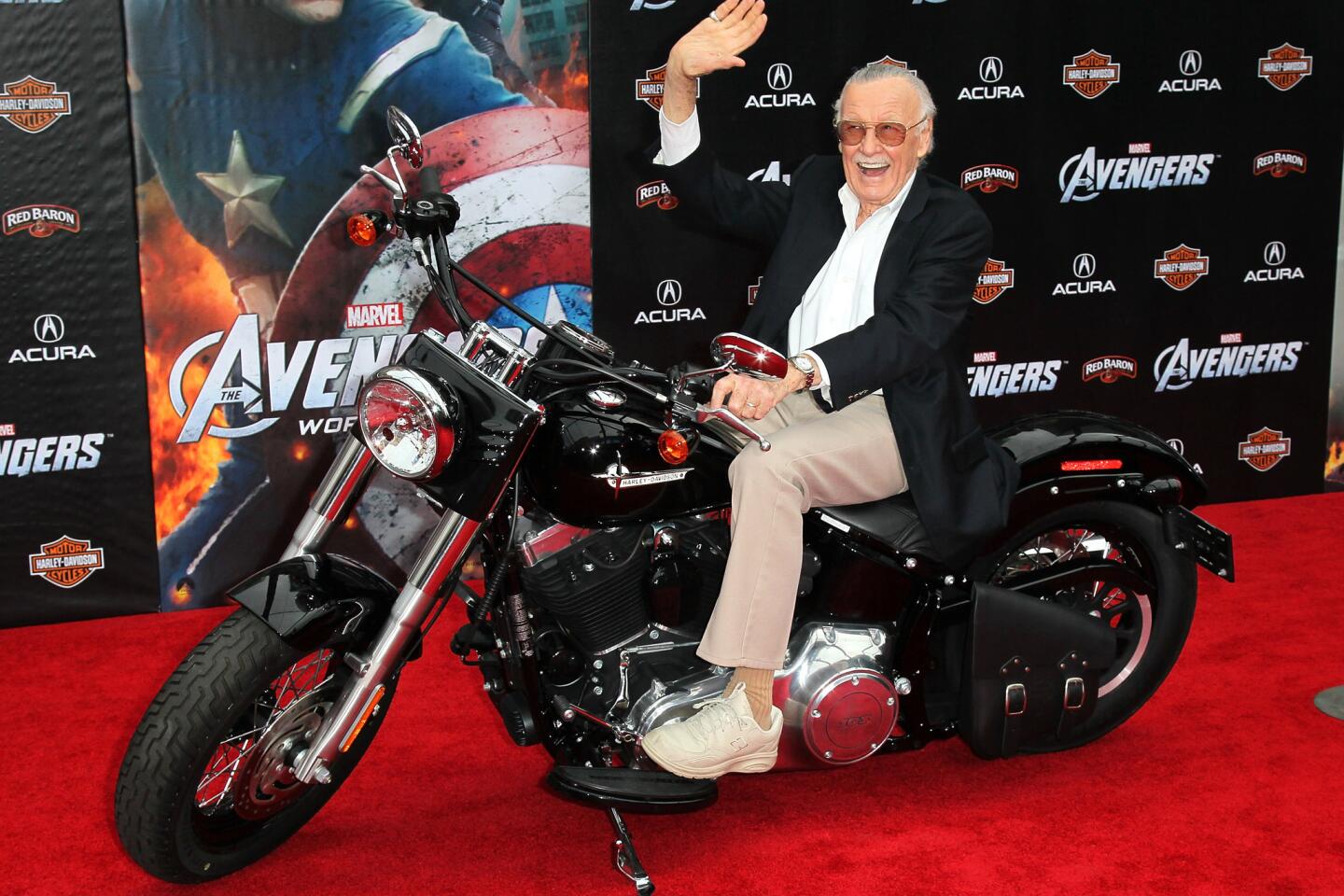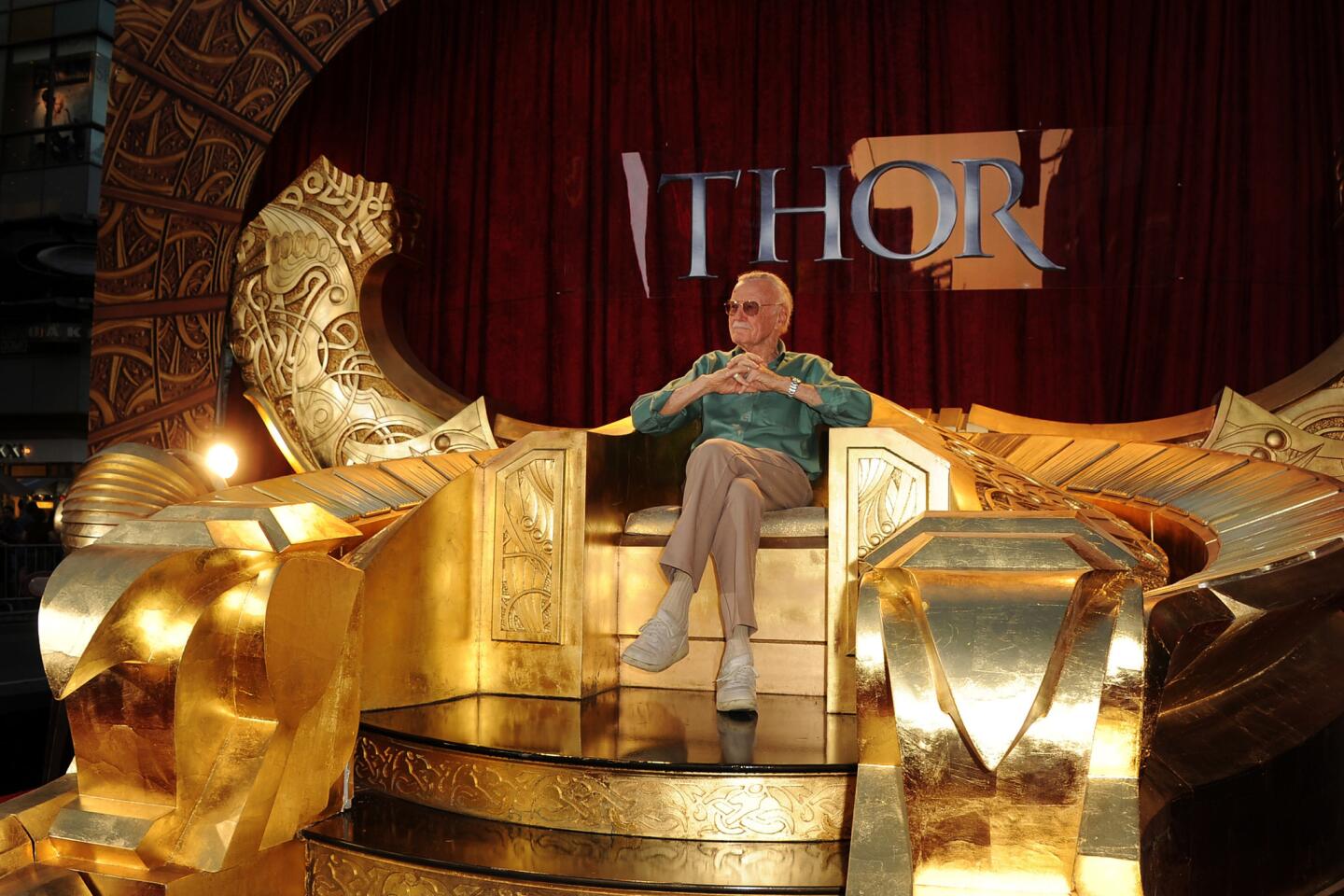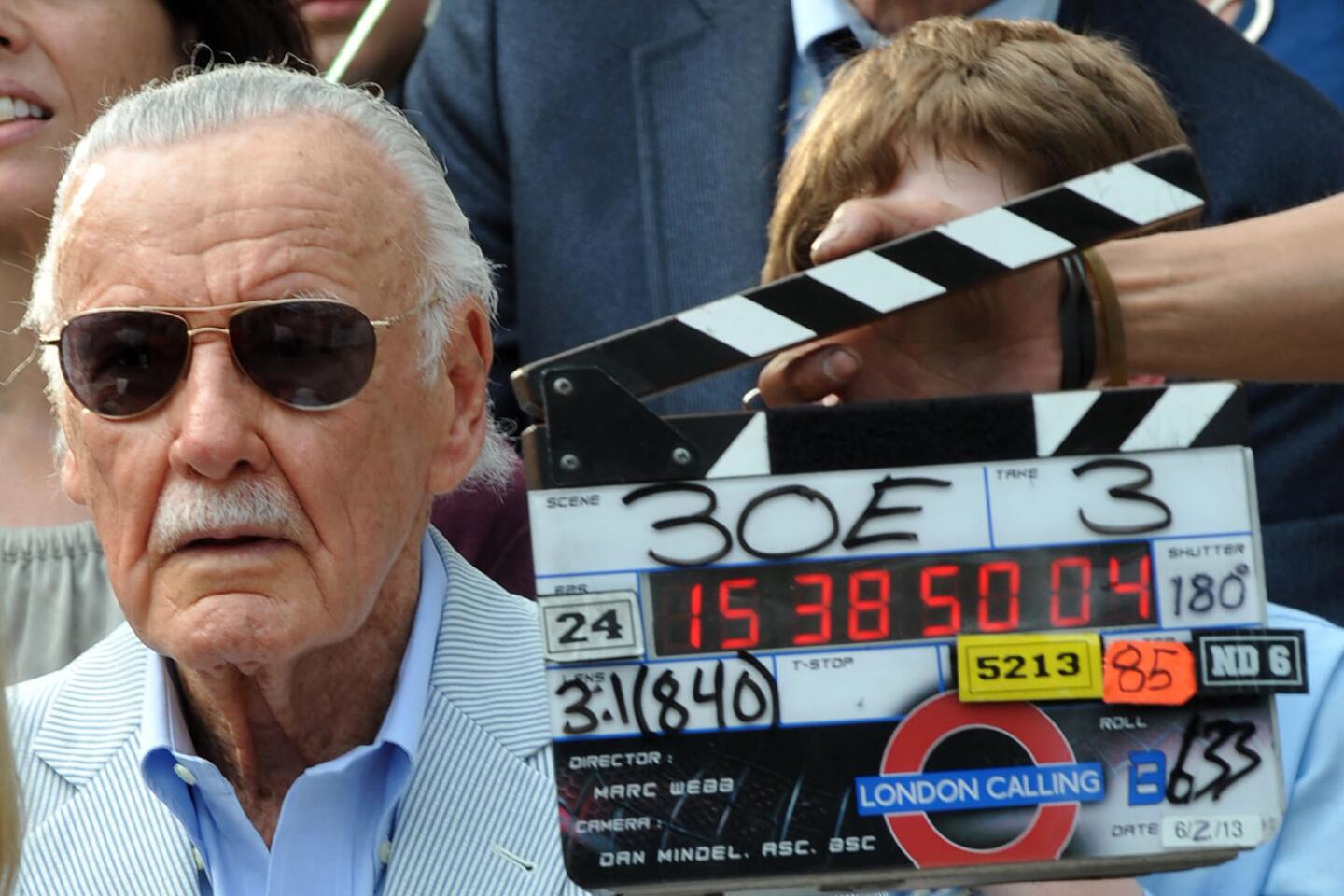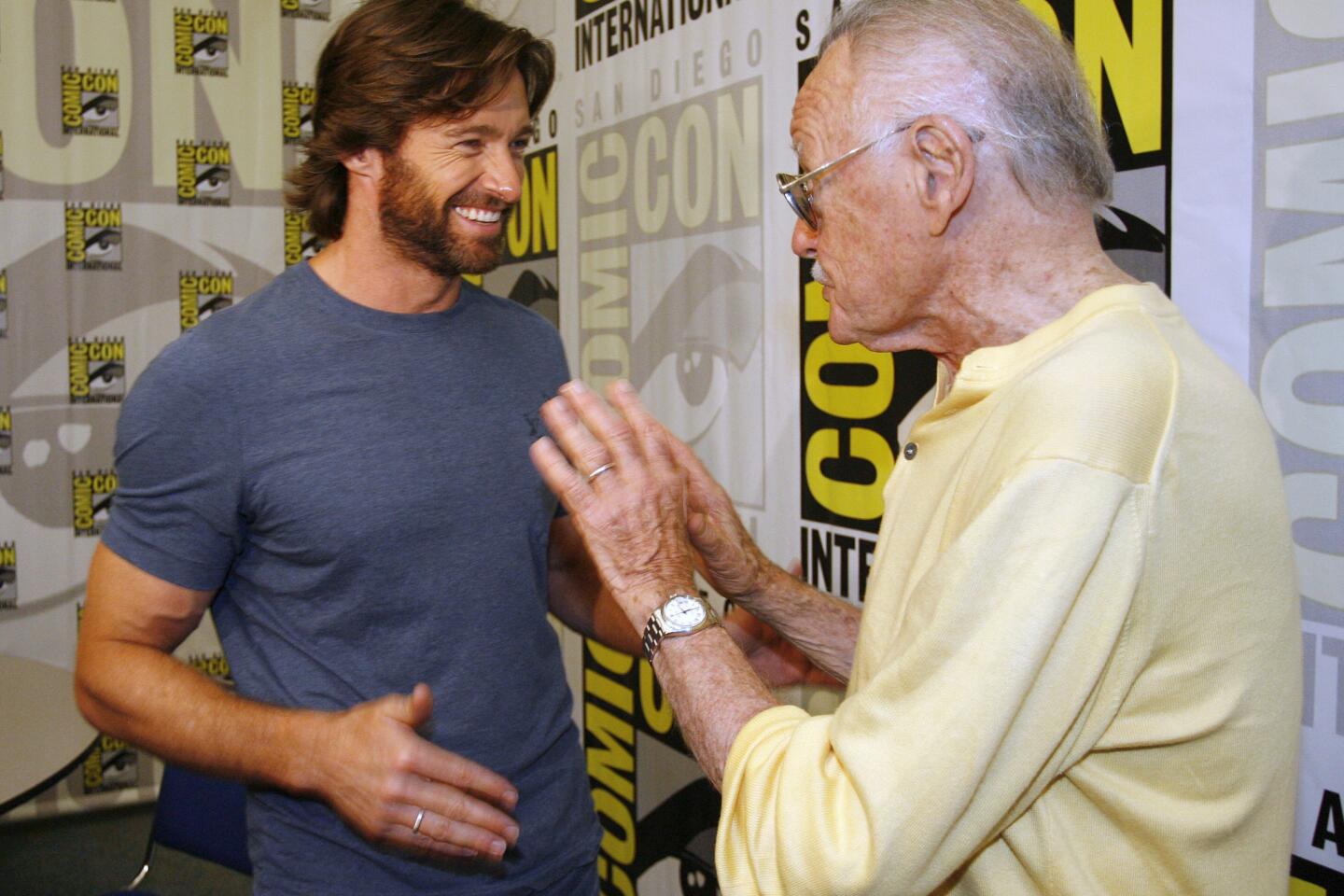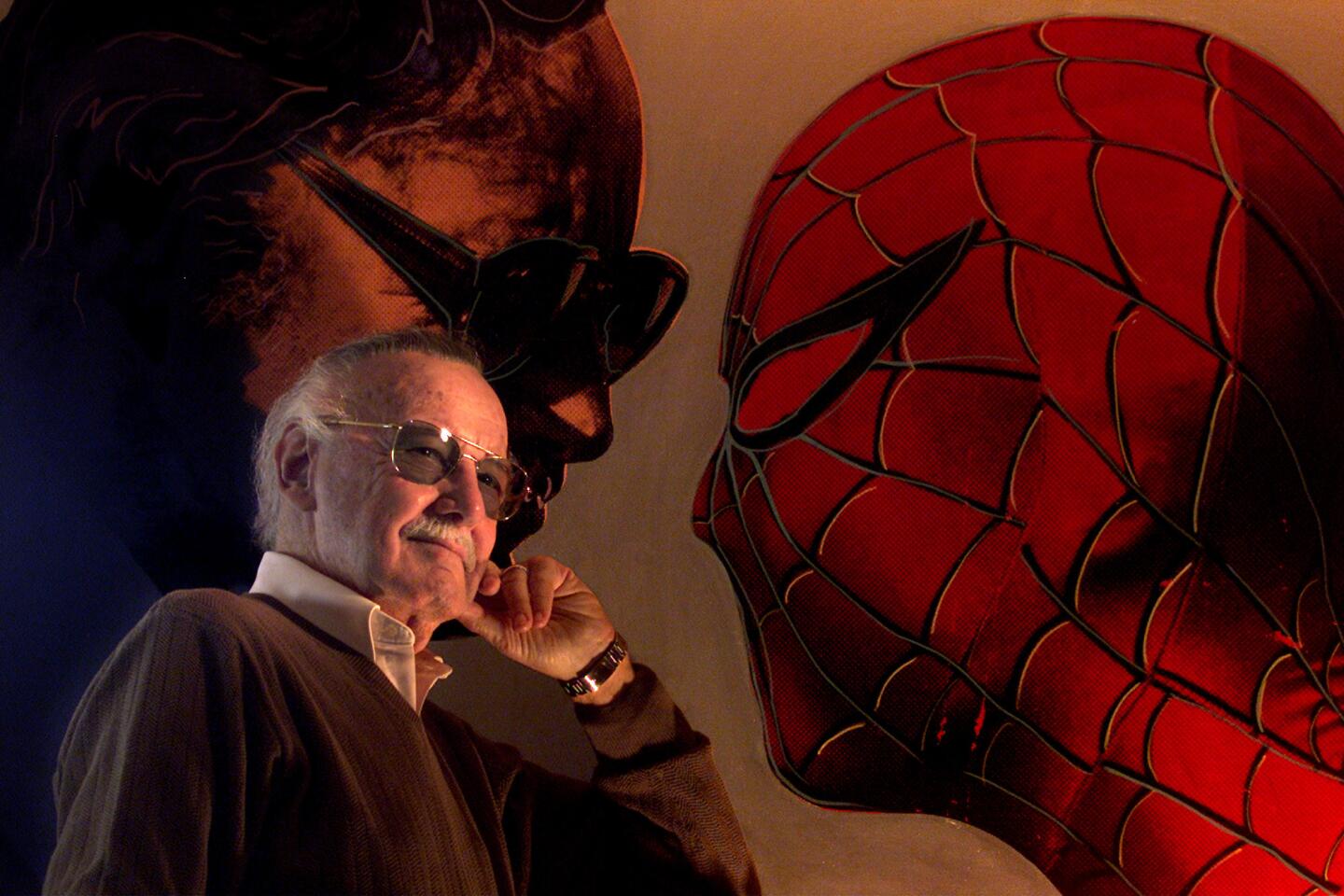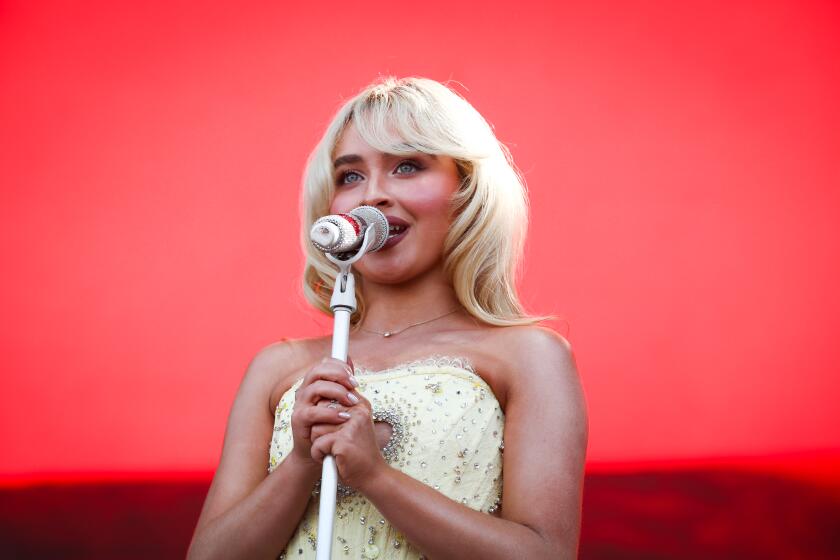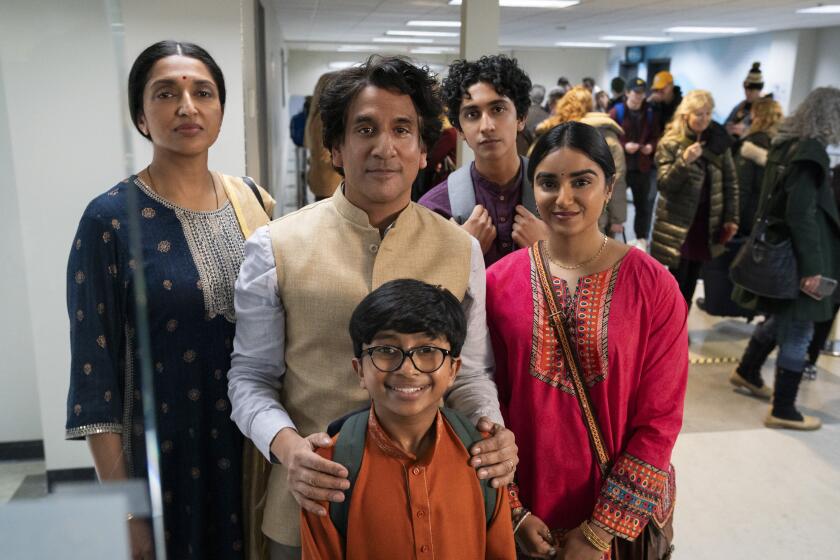The wisdom and wisecracks of Stan Lee: What he told The Times over the years

A look back at what fans and fellow comic book writers had to say about what Stan Lee means to them.
Marvel maestro Stan Lee spent his decades-long career creating some of the most iconic comic book heroes of all time, from the Avengers to the X-Men to current box-office heavyweight Black Panther.
In the process, he helped transform Marvel Comics from a 1960s upstart to a worldwide media juggernaut that reshaped the worlds of television and cinema.
“I’ve been saying this for years: People love fantasy,” he told the Los Angeles Times in 1989.
Lee was generous with his time with fans as he rose from cult status among comic book buffs and catapulted into the mainstream. He became a regular on the convention circuit, readily sharing tales of his youth until his death on Monday at age 95.
RELATED: An illustrated tribute to Stan Lee and his career »
Lee got his start working as a comics writer in the 1940s and shepherded the rise of Marvel Comics into a powerhouse in the ’60s alongside artists Jack Kirby and Steve Ditko.
The affable writer had tremendous influence on the genre, adapting to the times while breathing life into relatable characters lauded for their flaws and weaknesses along with their superhuman abilities.
“When I started, I worked for a publisher [who] used to say: ‘Don’t use words of more than two syllables. Don’t worry about characterization or dialogue. Just give me pages with a lot of action.’ And I did that for years, and then I got really sick of it,” he told The Times in 2012.
“So I started using a college-level vocabulary. I felt the reader would look it up in a dictionary, which wouldn’t be the worst thing in the world, or get it by osmosis,” he added. “The publisher really hated that, but it didn’t hurt the sales of the books.”
That tenacity helped him launch numerous ventures that saw him team up on projects with varied collaborators, including the Beatles’ Ringo Starr, Playboy’s Hugh Hefner and rapper RZA. In the meantime, he found his second calling as a cameo star, appearing in more than three dozen Marvel movies.
Here are a few of his memorable musings during the many interviews he gave to The Times.
RELATED: Comic-book legend Stan Lee, co-creator of Spider-Man and Marvel heroes, dies at 95 »
Why comic books should be taken seriously:
“There’s really nothing wrong with the comic book format. If Michelangelo and Shakespeare were alive today and decided to do a comic strip together, who’s to say that it wouldn’t be the most worthwhile, valid, viable form of literature that you could find.”
— from “Unleashing the Beast That Makes Men Human,” 1974
On the importance of flawed, real heroes:
“I thought, suppose there was a guy, Peter Parker, who’s also Spider-Man. And he can stick to walls, and spin a web, and has the strength of 12 men. We said just because he can do that doesn’t mean everything would be perfect in his life. We created the first superheroes who weren’t perfect, who worried about paying rent. It was satire — fantasy in a realistic setting.”
— from “Comics: Still a draw at middle-age,” 1984
What he got out of the convention circuit:
“The people in the audience may feel they learn something from me, at least I hope they do, but I learn so much more from them,” he said. “It gives you a chance to be out there and actually talk to the people you’re trying to reach.”
— from “Marveling at the Success of the Stan Lee Style,” 1989
On going from page to screen:
“When I was in comics, I was doing all this work that excited me, but all of that time I was thinking, ‘Wouldn’t it be great if I could get involved in movies and animation?’ So now I’m here, and that’s what I’m doing. I’m one of the most fortunate people I know.”
— from “Face to face with Stan Lee,” 1998
On his target demographic:
“I aimed the books at an older audience, and the kids could buy them too. I thought comics could be literature. I get my characters to talk like people really talk, and to react to things, to have their own speech patterns.”
— from “Face to face with Stan Lee”
On the importance of believing in yourself:
“I’ve always been my biggest fan.”
— from “Face to face with Stan Lee”
On the difference between action and violence:
“I don’t like too much violence. To me there’s a great difference between an action-packed story and a violent story, and I don’t like to do things that I don’t feel I could say to any parent, honestly, ‘Your child could read that.’”
— from “The Invincible Stan Lee?,” 2000
On the common thread of his stories:
“Tastes change, but certain things remain basic. People like stories with characters that they can identify with. Even if they’re fantasy characters from another planet or dimension. People like stories that have surprises, so they don’t feel they’ve seen this 100 times before. But the surprises have to make sense. They can’t just be thrown in to fool the reader.”
— from “X-Ray Visionary: New Adventures in the Saga of Stan Lee,” 2005
On all those film cameos:
“Anybody can be an actor, but it takes a certain talent to do cameos. Say, if you write this down as if I’m saying these things seriously, I’ll shoot you!”
— from “Patt Morrison Asks: Comics genius Stan Lee,” 2011
On his ‘Midas touch’:
“I’ve been in this business so long dealing with fans that I can really, after launching anything, I can tell within a couple of days of receiving the fan mail and fan emails whether or not we’re on the right track.”
— from “Stan Lee’s World of Heroes unveils full lineup,” 2012
Follow me: @NardineSaad
More to Read
The biggest entertainment stories
Get our big stories about Hollywood, film, television, music, arts, culture and more right in your inbox as soon as they publish.
You may occasionally receive promotional content from the Los Angeles Times.
